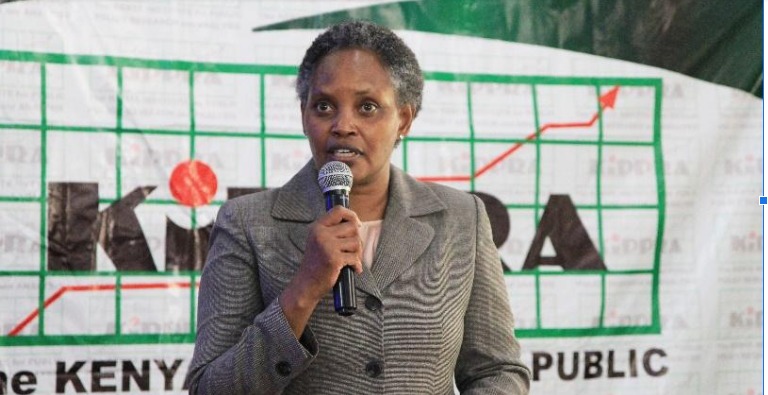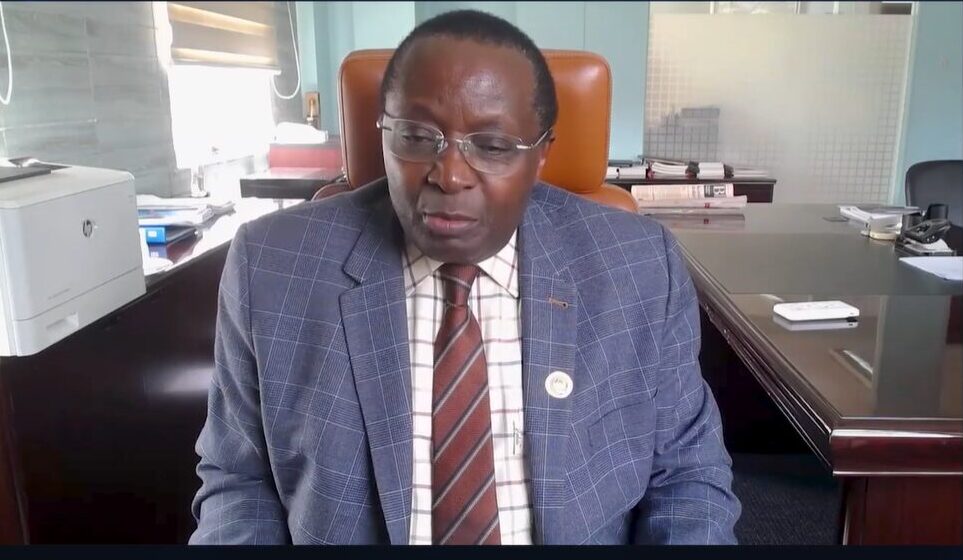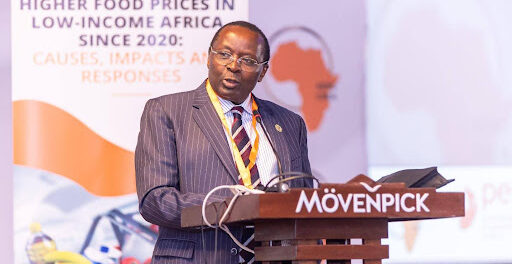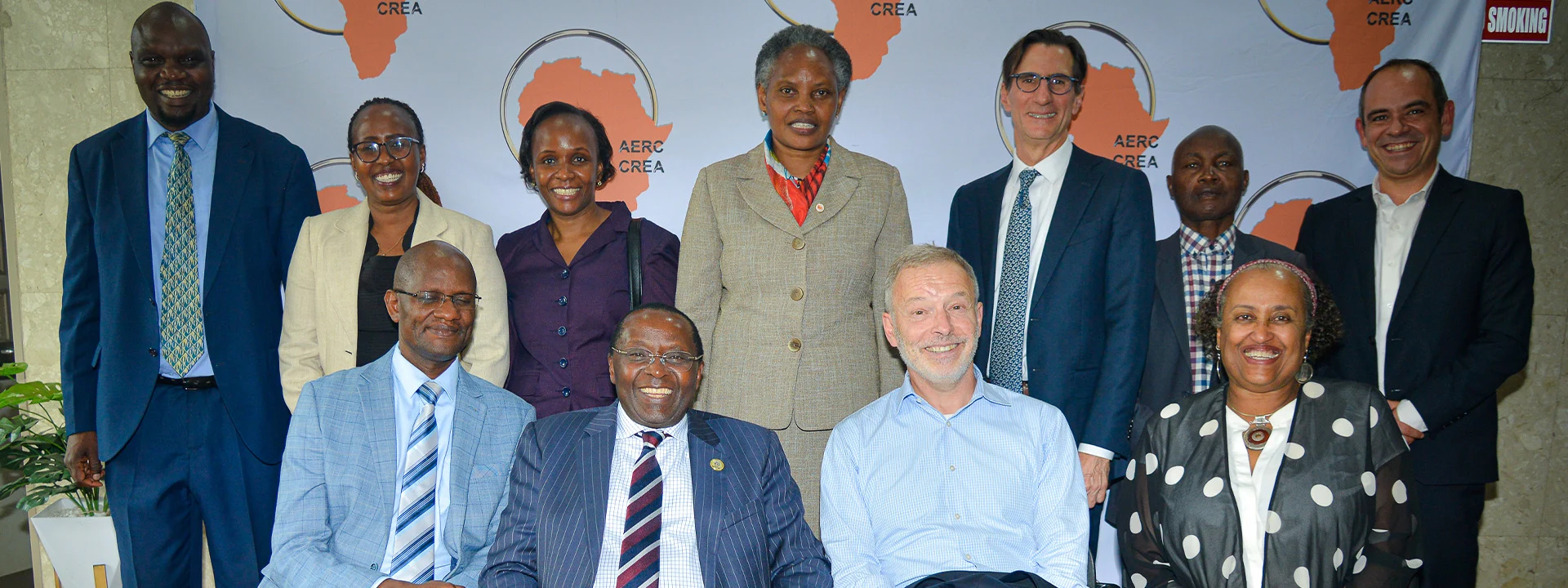

KIPPRA – AERC Host a Dissemination Workshop on “Employment Creation for Youth in Kenya”
March 24, 2022The Kenya Institute for Public Policy Research and Analysis (KIPPRA), in collaboration with the African Economic Research Consortium (AERC), hosted a dissemination workshop on “Employment Creation for Youth in Kenya”. The event, which took place at the Utalii Hotel on 18th March 2022, drew various participants, including representatives for the Principal Secretary, State Department for ICT, Innovation and Youth Affairs, Hon Charles Sunkuli, CBS; AERC’s Executive Director; and policymakers from various sectors, international organizations, civil society, private sector players, the media, the youth and students.
The Chief Administrative Secretary in the State Department of Planning Hon. Eric Wafukho represented the Cabinet Secretary, Amb. Ukur Yattani, EGH. He highlighted various government initiatives to build skills for the youth and create employment opportunities.
In her remarks, KIPPRA Executive Director, Dr. Rose Ngugi, reiterated the importance of equipping the youth with the right skills to enable them to achieve maximum productivity in the workplace. Representing the African Economic Research Consortium (AERC) Executive Director Prof. Njuguna Ndungu was Director of Research Prof. Abebe Shimeles, who lauded the collaborative work between AERC and KIPPRA, noting that the outcome would support policy decisions.
HIGHLIGHTS OF FINDINGS
According to the research findings, which were presented by the Head of the Social Sector Department at KIPPRA, Dr. Eldah Onsomu, the sectors with the highest potential for job creation are in agriculture (agro-processing), Information Communication Technology (ICT), tourism, education and transport. This is because these sectors have extensive forward and backward linkages with other sectors and yield high growth in employment for a unit of economic growth.
It was also noted that most of the unemployed youth are between the ages of 20-24 years and 25-29 years with about 53 percent of those employed being in vulnerable employment. Also, employment inequalities were noted with a larger proportion of women being underemployed relative to male youths. The need to reverse the trend was recommended to eliminate future gender disparities in wage employment.
The workshop also discussed challenges faced by the youth in searching for jobs and the role of the informal sector in employment creation. It was noted that jobseekers highly relied on informal job search methods such as family members. The need to invest in job search and placement infrastructure for the youth, while supporting the transition between education and training to the labour market was recommended.
It was also indicated that the informal sector constitutes 83 percent of employment in the country with the highest proportion of the employees having no formal education, lacking job security, lacking social assistance and being susceptible to exploitation.
YOUTH INNOVATORS
The event also saw presentations from youths engaged in job creation in various capacities, including Frankline Ojiambo, who runs an ICT-led company in Kayole and Umoja in Nairobi, training the youth on digital technologies. Ojiambo explained how he taught himself computer skills because his computer, which was the source of his livelihood, failed to work for three weeks and he had to wait for a technician to find time to come and repair it. That marked the beginning of his quest for knowledge in computer hardware and software. He now spends his time imparting the same knowledge and skills to other youth.
Another youth who shared her experience was Michelle Muchilwa, a 16-year-old Ocean Hero, Conrad Challenge Innovator and Technovation Regional Winner from Kisumu. Through a campaign to restore Lake Victoria, Michelle and her brother built an app to collect data on plastic pollution in the Lake Basin. This has in turn created employment for programmers and designers.
Another innovator who spoke at the event is Mr. David Kariuki, a university student and CEO of CAES International. He is also the 21st President of the General Assembly at the Kenya Model United Nations; a student-run, youth-led, non-governmental organization affiliated to the United Nations Information Centre with a student base of more than 1,200. He explained his passion to see Kenya and the world adopt electric-powered vehicles as well as the infrastructure needed for this to be successful.
KIPPRA Mentorship Programme for Universities (KMPUs) alumni from various universities also attended and got a chance to contribute to the discussions.
Other guests who gave remarks include Kenya National Bureau of Statistics Board Chairperson Mr. Stephen Wainaina, Mr. Tom Oduol from the Ministry of ICT, CAP-Youth Empowerment Institute CEO Mr. Ndungú Kahihu, Partnership for Economic Policy Executive Director Prof. Jane Kabubo-Mariara, VSO International Country Director Mr. George Awalla.






